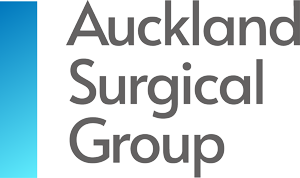Potential complications
All surgery has risks. Any stomach operation for obesity is considered major surgery, and has significant risks associated with it. Overall the risk of serious complications is very low.
People have died from having operations for morbid obesity. It happens rarely, but the risk can never be removed completely. If you are older, or you already have certain health problems related to your obesity, your risk may rise. Heart attacks after the operation or clots that form in the leg veins, which then pass to the lungs, can cause death in morbidly obese people after surgery. This risk is less than one in 1000. Thorough precautions are taken during surgery and your hospital stay to minimise these risks, but they cannot be eradicated altogether.
Other problems that can occur after gastric sleeve surgery include pneumonia and wound infections. Some of these are relatively minor and do not have a long-term effect on your recovery. Other complications may be more significant and require a longer hospital stay and recovery period. Antibiotics at time of surgery, deep breathing exercises and early mobilisation after surgery are some of the measures taken to reduce the risks of these complications.
After a gastric sleeve procedure, all patients should take multivitamin supplements lifelong, and some need to take iron or calcium supplements as well. Sometimes one or other of these supplements are best given as an injection.
Complications that can occur with gastric sleeve surgery are listed below. This list is long, and although most patients have no complications, or minor complications only, please take note and ask your surgeon and team any questions that will help you to understand the risks associated with obesity surgery.
The most serious complication of sleeve gastrectomy is a leak in the staple line where the stomach has been removed. If this does occur it will usually be within a few days of surgery.
Patients often ask “how will I know if I have a leak?”. Usually the patient will experience quite severe pain in the upper abdomen that comes on rapidly and is often worse very soon after swallowing food or fluid. The nature of this pain is such that it is immediately apparent to most patients that something is seriously wrong. In this situation contact your surgeon without delay.
Potential complications
During gastric sleeve surgery
- A larger incision may need to be made because of technical difficulty with keyhole approach
- An injury to the bowel or other organs from insertion of keyhole instruments
- Bleeding from blood vessels or injured organs
- Technical difficulty leading to change in operation strategy
- Complications related to placement of intravenous and arterial lines. This includes bleeding, nerve injury, or pneumothorax (collapsed lung)
- Nerve or muscle injury, usually temporary, related to positioning during surgery
- Allergic reactions to medication, anaesthetic agents or prosthetic devices
During gastric sleeve surgery
- Mortality rate less than 1 in 1000
- Leak from staple lines. Rate between 1 to 2 in 100. May require further surgery or lead to sepsis
- Significant bleed. Rate around 1 in 300. May require transfusion or further surgery
- Infection at keyhole incisions, or deep within the abdomen. A serious infection is often called sepsis. This is uncommon but can lead to further surgery, a longer hospital stay organ failure or death
- Deep vein thrombosis (blood clot in the leg veins). These can occasionally travel to the lungs (pulmonary embolus). Rate around 1 in 300.
- Pneumonia or other breathing problems. The worst of these is respiratory failure, which is the inability to breathe adequately after surgery, and may require support of breathing in an intensive care ward
- Heart attack or abnormal heart rhythm
- Stroke
- Pancreatitis
- Urinary tract infection or injury to the urinary tract from catheter insertion
- Colitis (inflammation of the colon), usually due to antibiotics used in surgery
- Constipation
In the longer term
- Troublesome symptoms may include abdominal pain, change in bowel pattern, tiredness, bloating, nausea or vomiting
- Narrowing at the middle of the stomach (known as hour glass stomach). May require stretching with a balloon or rarely surgery
- Excessive or inadequate weight loss. Rarely requires further surgery
- Dehydration or imbalance of body salts, usually from inadequate fluid intake, infrequently requires admission to hospital
- Inflammation of the remaining stomach or oesophagus
- Gall bladder disease, usually from gallstones that form during rapid weight loss. Can require surgical removal of the gallbladder
- Hernias at the site of incisions
- Psychological problems can include depression, adjustment disorder, relationship difficulties, substance abuse and rarely suicide
- Liver disease or failure. Can occur if there is underlying liver damage that is worsened by weight loss or surgery
- Hair loss from protein malnutrition. This usually resolves within a few months of surgery and is usually only noticeable to the patient

